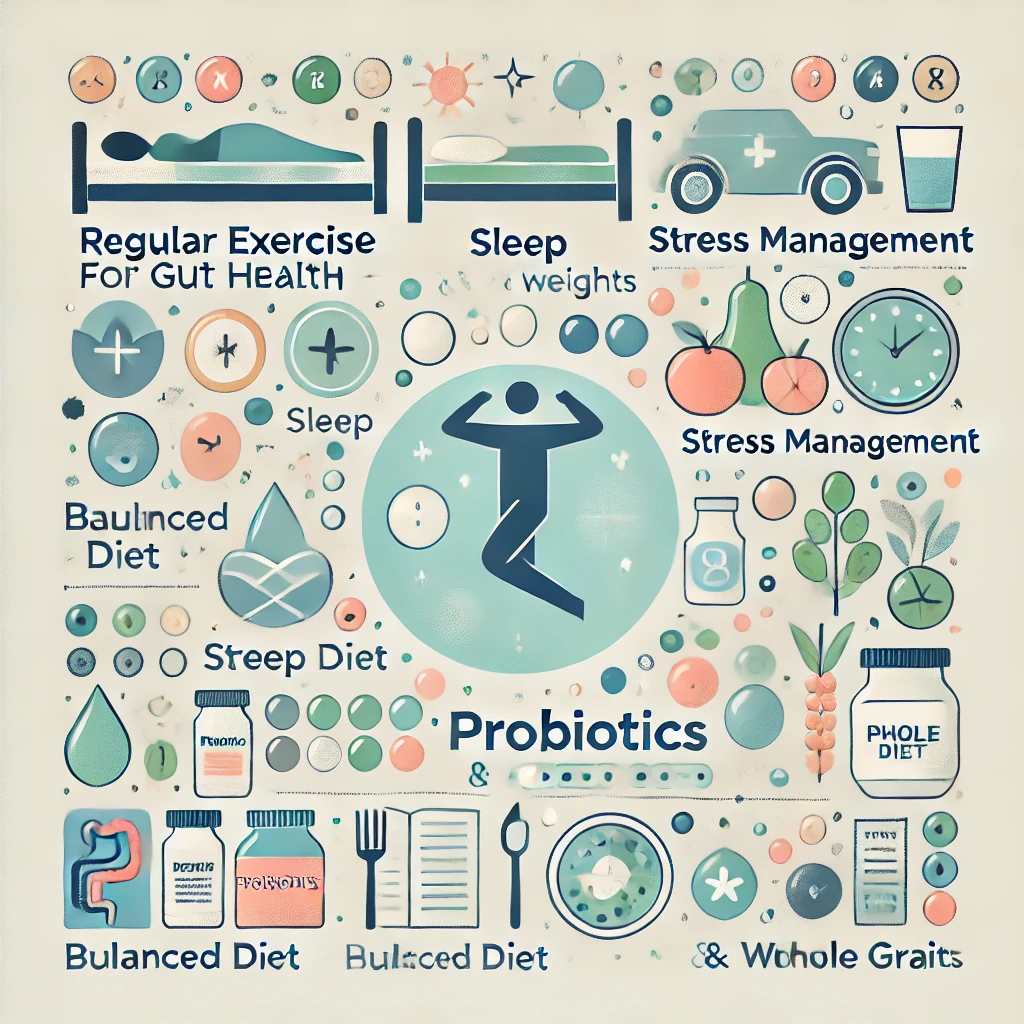
Gut health might not be the first thing to mind when considering aging. Yet, the ecosystem in your digestive system, known as the gut microbiota, plays a pivotal role in your overall health. It’s involved in digestion, of course, but also in immune responses, mood regulation, and chronic disease prevention. A healthy gut can mean the difference between thriving and simply surviving as you age.
Scientists have discovered an intriguing connection between the state of the gut microbiota and how well we age. It’s not just about avoiding digestive issues; it’s about bolstering our bodies against age-related decline. The bacteria in our guts can influence inflammation, which is implicated in many diseases that become more common as we age, including heart disease, cancer, and Alzheimer’s disease.
How Does Gut Health Affect Aging?
Your gut health directly influences aging by modulating inflammation, immunity, and metabolism. According to Dr. Mark Hyman, an imbalanced gut microbiome is a significant contributor to aging and disease. His insights emphasize that chronic inflammation caused by an unhealthy gut is linked to conditions like heart disease, cancer, and dementia, which are common as we age. You can learn more about his perspective here.
Moreover, a healthy gut supports the immune system by preventing harmful bacteria and pathogens from entering the bloodstream. As gut health declines with age, the gut lining can become more permeable (a condition known as “leaky gut”), allowing toxins and bacteria to leak into the bloodstream, promoting inflammation and accelerating aging.
Therefore, maintaining a healthy gut can reduce the risk of chronic diseases and improve immune function, digestion, and even cognitive health, all of which are critical for healthy aging.
Studies show that a balanced and diverse gut microbiome is associated with longevity and better quality of life in older adults.
Maintaining Gut Health for Healthy Aging
Maintaining gut health ensures that the bacteria in your digestive tract are as varied and balanced as possible. A diverse microbial community is associated with better digestive health, translating into improved overall health and a higher quality of life in later years.
Essential Nutrients for Maintaining a Healthy Gut
- Fiber: Promotes healthy digestion and feeds beneficial bacteria.
- Probiotics: Found in yogurt, kefir, and other fermented foods, probiotics support a balanced gut.
- Prebiotics: Foods like garlic, onions, and bananas provide food for good bacteria.
- Vitamins and Minerals: Vitamin D, zinc, and magnesium maintain gut lining integrity.
- Hydration: Ensures proper digestion and intestinal health.
Dietary Habits to Promote Gut Health As You Age
As the saying goes, we are what we eat, and there’s no place where this is more true than in the complex world of gut health. A balanced diet rich in diverse, whole foods is essential to keeping your digestive system functioning optimally as you age. By embracing a variety of nutrients, you help maintain a robust community of gut microbes, which are vital for digestion, immune function, and even mood regulation.
Fermented foods hold a special place at the table for gut health. Items like yogurt, kefir, sauerkraut, and kimchi bring beneficial probiotics to your gut’s microbial mix. These living microorganisms can aid digestion and bolster the gut barrier, making it harder for harmful pathogens to cause trouble.
Then there are foods and habits it’s wise to scale back on. Processed foods laden with sugars, artificial additives, and fats can stoke inflammation and disrupt your gut flora. It’s also prudent to moderate alcohol consumption. Both can irritate the gut lining if overdone, and alcohol, in particular, can alter the microbial balance, potentially leading to digestive issues.
By carefully considering what you put on your plate and into your body, you’re supporting your gut health and setting the stage for healthier aging. This isn’t about stringent diets or restrictions but rather making informed choices that benefit your body’s inner ecosystem.
Lifestyle Adjustments for Gut Health and Aging,

Maintaining a healthy gut isn’t just about what you eat. Lifestyle changes like managing stress, regular physical activity, and adequate sleep are critical in supporting gut health as you age. For a deeper understanding of how gut health impacts aging, you can watch this insightful video from the Himalayan Institute. It explores the connection between gut health and preventing age-related diseases, offering practical tips for maintaining digestive well-being.
- Stress Management: Chronic stress can lead to gut imbalance (dysbiosis). Techniques like mindfulness and relaxation can reduce stress and support a healthier gut.
- Regular Exercise: Physical activity promotes microbial diversity, which improves digestion and overall well-being. Aim for a mix of cardio, strength, and flexibility exercises.
- Sleep Hygiene: Disrupted sleep affects gut bacteria and can lead to metabolic issues. Prioritize getting 7-9 hours of sleep with a consistent bedtime routine.
- Quit Smoking: Smoking causes inflammation and gut disorders. Quitting smoking can significantly improve gut health and overall longevity.
Monitoring and Support: Nurturing Your Gut Health Over Time
Continuous attention to gut health, especially as you age, is essential. It’s not just about adapting to the right foods or sticking to healthy habits for a few weeks; it’s a lifelong commitment.
Consistency is key to yielding results, and it’s paramount to maintain a keen eye on how your body responds to different foods and lifestyle changes.
When it comes to seeking professional advice, know that there is never a wrong time. Whether you’re concerned about digestive discomfort or interested in optimizing your diet for gut health, a healthcare provider can offer guidance tailored to your needs. They can help interpret symptoms and recommend changes or supplements that could make a big difference.
Advancements in gut health assessments have been noteworthy. From comprehensive stool analyses to microbiome testing, the scope of understanding and improving gut health has expanded. Engaging with these advancements can lead to personalized interventions, further enhancing one’s ability to maintain a healthy gut as one age.
In conclusion
Nurturing gut health is crucial for vibrant aging and overall well-being. Individuals can significantly improve their gut microbiome by focusing on a balanced diet, managing stress, exercising regularly, prioritizing sleep, and avoiding harmful habits like smoking. Continuous monitoring and professional guidance further enhance personalized care. Embracing these strategies supports digestive health and fosters resilience against age-related diseases, paving the way for a healthier, more active life as we age.
